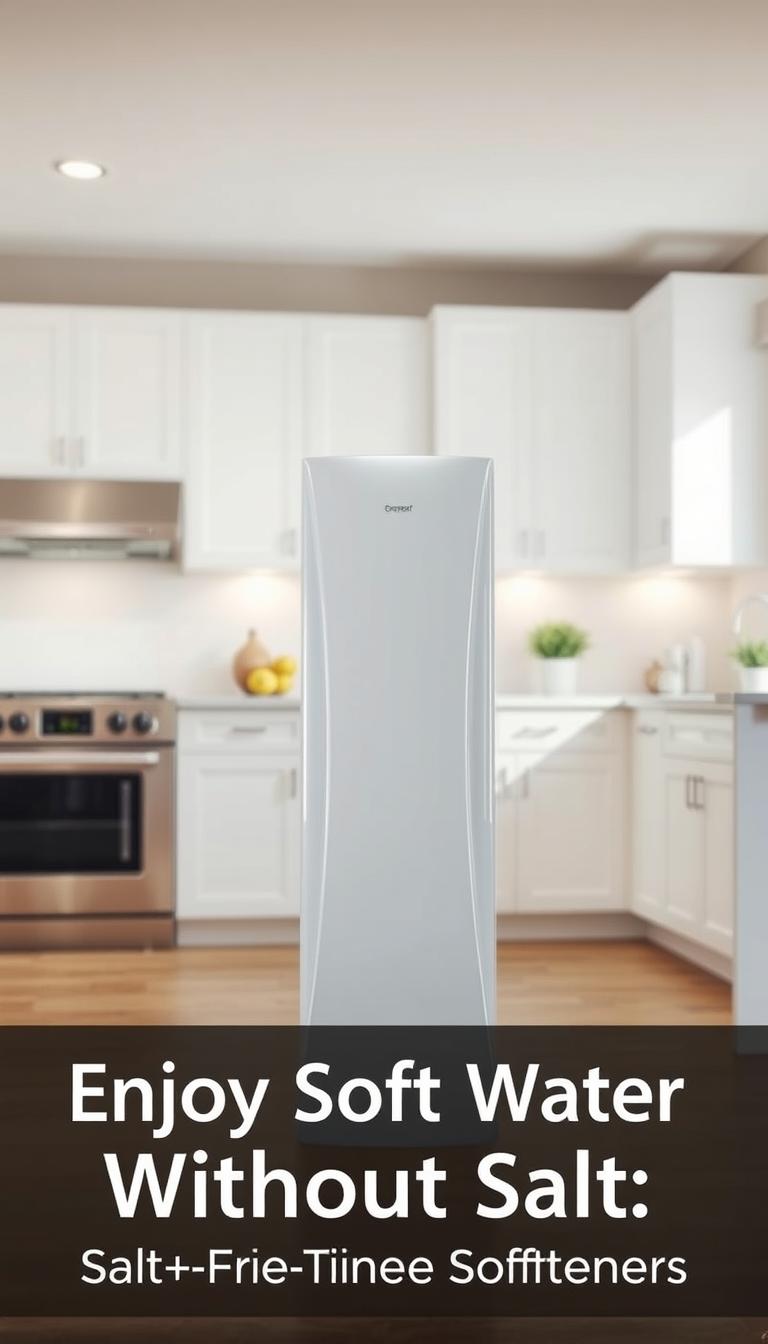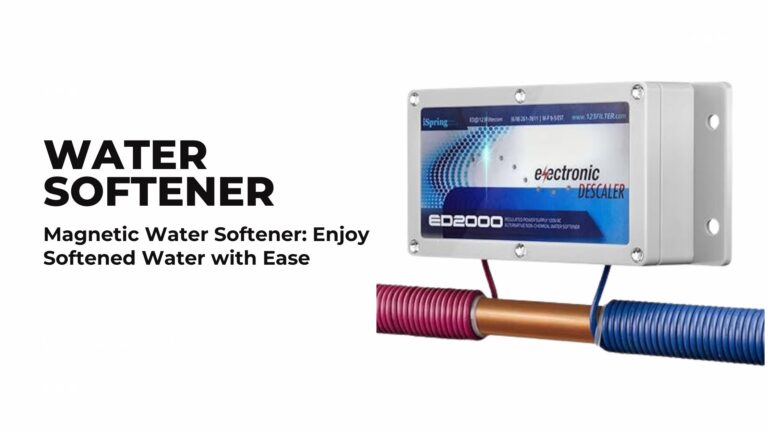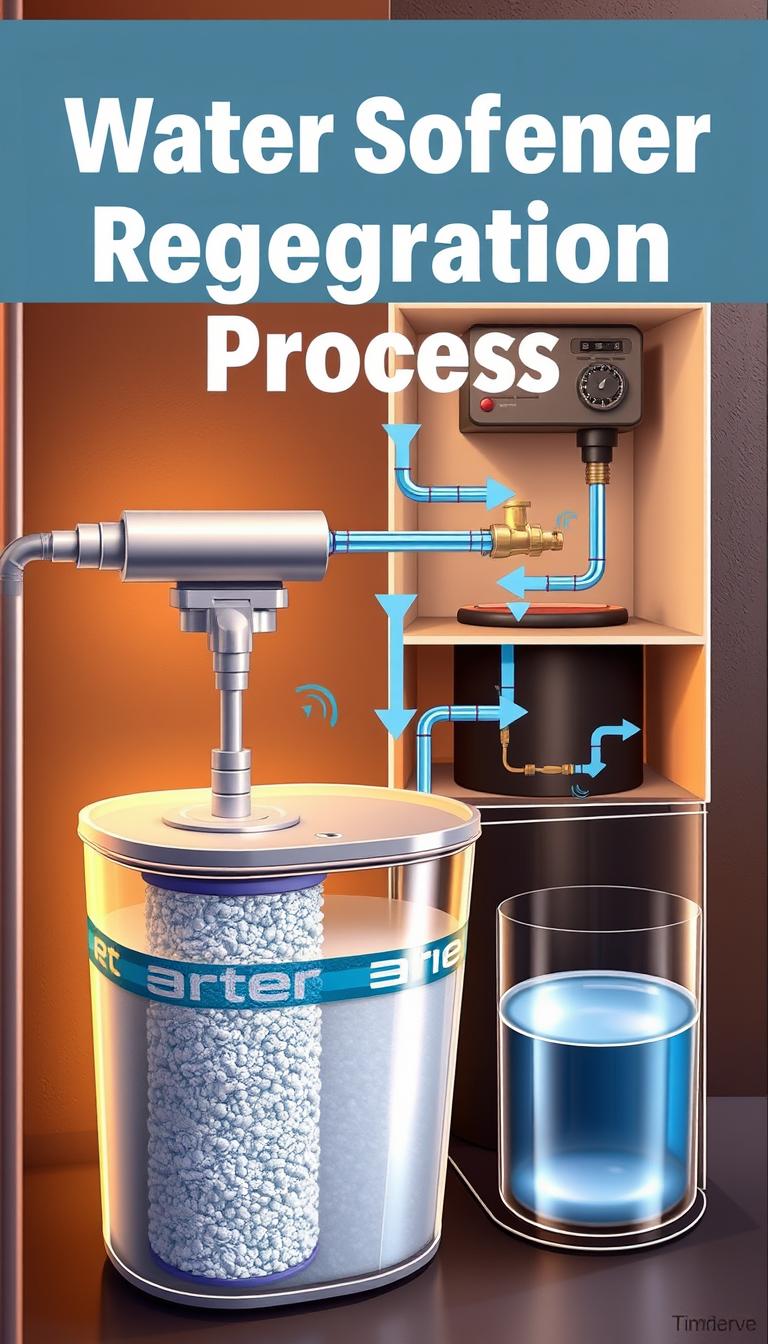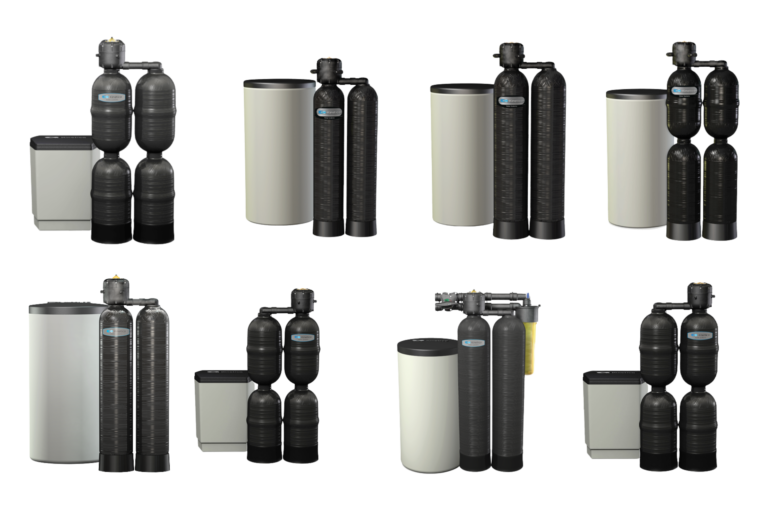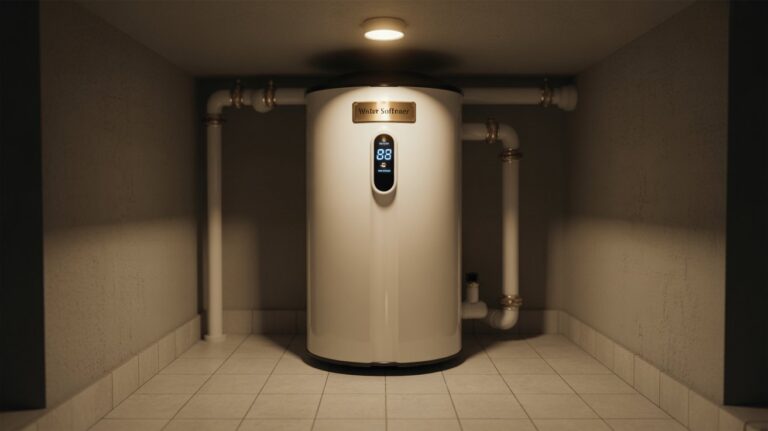Enjoy Soft Water Without Salt: Salt-Free Home Softeners
Are you tired of dealing with the harsh effects of hard water on your skin, hair, and appliances? Imagine having soft, gentle water in your home without using salt or harming the environment.
Eco-friendly water softeners are revolutionizing the way we think about water treatment. Salt-free home water softeners are gaining popularity for their ability to prevent scale buildup without the need for salt, making them a more sustainable option.
The benefits of salt-free water softeners extend beyond their environmental advantages. They are also effective in reducing the negative impacts of hard water on household appliances and personal care.
Key Takeaways
- Eco-friendly alternatives to traditional salt-based water softeners
- Effective in preventing scale buildup without salt
- Gentle on skin and hair
- Environmentally sustainable
- Reduces damage to household appliances
Hard Water Problems and Their Impact on Your Home
Hard water is more than just a nuisance; it can have significant effects on your home’s appliances, plumbing, and even your personal hygiene. Understanding these impacts is crucial for homeowners looking to mitigate the issues associated with hard water.
Common Signs of Hard Water in Your Home
Identifying hard water in your home can be done by looking out for certain signs. These include visible mineral deposits and stains, as well as effects on your skin and hair.
Visible Mineral Deposits and Stains
One of the most noticeable effects of hard water is the presence of mineral deposits and stains on surfaces. These are often seen as white or off-white spots on sinks, toilets, and shower doors.
Effects on Skin and Hair
Hard water can also have a drying effect on your skin and hair, leading to irritation and dullness. The minerals present in hard water, such as calcium and magnesium, can strip your skin and hair of their natural oils.
How Hard Water Affects Appliances and Plumbing
Beyond the visible signs, hard water can have a significant impact on your home’s appliances and plumbing system.
Reduced Appliance Lifespan
The minerals in hard water can cause scale buildup inside appliances, reducing their efficiency and lifespan. This can lead to increased maintenance and replacement costs over time.
Plumbing System Damage
Similarly, hard water can damage your plumbing system by causing scale buildup in pipes, which can lead to reduced water pressure and potentially costly repairs.
| Issue | Effect of Hard Water | Potential Solution |
|---|---|---|
| Visible Stains | Mineral deposits on surfaces | Regular cleaning, water softening |
| Skin and Hair Issues | Dryness and irritation | Using moisturizers, installing a water softener |
| Appliance Damage | Scale buildup, reduced efficiency | Regular maintenance, salt-free water conditioners |
What is a Salt-Free Home Water Softener?
The concept of a salt-free home water softener may seem revolutionary, but it’s based on advanced technology that conditions water without removing its beneficial minerals. Unlike traditional water softeners that use salt to remove calcium and magnesium ions, salt-free systems condition the water in a way that prevents scaling without altering the water’s mineral content.
Definition and Basic Functionality
A salt-free home water softener is a device that uses alternative technologies to traditional ion exchange systems. These systems don’t remove minerals like calcium and magnesium but instead alter their structure so they don’t stick to surfaces, thus preventing scale buildup. Template Assisted Crystallization (TAC) is one such technology that facilitates this process.
How Salt-Free Systems Differ from Traditional Softeners
The primary difference between salt-free and traditional water softeners lies in their approach to dealing with hard water. Traditional softeners use ion exchange to replace calcium and magnesium ions with sodium ions, effectively softening the water but adding sodium. In contrast, salt-free systems condition the water, preserving its natural minerals.
Conditioning vs. Ion Exchange
Conditioning involves changing the physical properties of minerals in the water so they don’t form scales. This is different from ion exchange, where minerals are actually removed and replaced. Conditioning is a more natural approach that maintains the water’s original mineral content, which is beneficial for health and taste.
Mineral Retention Benefits
One of the significant advantages of salt-free systems is their ability to retain beneficial minerals in the water. For more information on the pros and cons of salt-free water softeners, you can visit Culligan’s blog. This not only ensures that the water is healthier but also retains its natural taste. The key benefits include:
- Healthier water with retained minerals
- No addition of sodium or other chemicals
- Environmentally friendly due to reduced salt discharge
By understanding the differences between salt-free and traditional water softeners, homeowners can make informed decisions about their water treatment needs.
The Science Behind Salt-Free Water Conditioning
Delving into the science behind salt-free water conditioning reveals innovative technologies that are changing how we manage water hardness. At the heart of these systems are advanced methods that prevent scale buildup without the need for salt, offering a more sustainable and healthier alternative for households.
Template Assisted Crystallization (TAC) Technology
Template Assisted Crystallization (TAC) technology is a leading method used in salt-free water conditioning. This process involves the use of a medium that templates the crystallization of minerals, such as calcium and magnesium, turning them into harmless, non-adhering crystals that do not form scale on surfaces. TAC technology is effective in reducing the problems associated with hard water, including clogged pipes and appliance damage.
Other Salt-Free Technologies Explained
Beyond TAC, other technologies are employed in salt-free water conditioning, including electromagnetic and electronic descalers, as well as chelation and sequestration methods.
Electromagnetic and Electronic Descalers
Electromagnetic and electronic descalers work by generating a field that alters the properties of minerals in the water, preventing them from forming scale. These systems are easy to install and maintain, making them a convenient option for many homeowners.
Chelation and Sequestration Methods
Chelation involves the use of chemicals that bind to calcium and magnesium ions, preventing them from precipitating out of solution. Sequestration methods keep these minerals in a form that does not adhere to surfaces, thus preventing scale buildup. These methods offer an additional layer of protection against the effects of hard water.
The combination of these technologies provides a comprehensive approach to managing water hardness without the use of salt, catering to the needs of households seeking effective and sustainable water treatment solutions.
Benefits of Using Salt-Free Water Softeners
Salt-free water softeners offer a multitude of benefits, ranging from environmental advantages to improved health considerations. These systems are designed to provide a healthier and more sustainable alternative to traditional salt-based water softeners.
Environmental Advantages
The environmental benefits of salt-free water softeners are significant. By not using salt, these systems eliminate the discharge of salt into waterways, which can harm aquatic life.
Reduced Salt Discharge to Waterways
Salt-free systems prevent the contamination of rivers, lakes, and groundwater with salt, thereby protecting aquatic ecosystems.
Lower Water Consumption
These systems typically don’t require the periodic regeneration cycles that salt-based systems do, leading to lower water consumption.
Health Considerations
Salt-free water softeners also offer health benefits by providing sodium-free water and retaining beneficial minerals.
Sodium-Free Water Benefits
For individuals on low-sodium diets, salt-free water softeners are particularly beneficial as they don’t add sodium to the water.
Retention of Beneficial Minerals
Unlike some water treatment systems, salt-free softeners help retain minerals in the water, which are essential for health.
Maintenance and Cost Benefits
The maintenance and cost advantages of salt-free water softeners make them an attractive option for many households.
No Salt Purchases or Handling
Without the need to buy and handle salt, households can save time and reduce their maintenance efforts.
Reduced Service Requirements
Salt-free systems generally require less maintenance than traditional systems, as they don’t need frequent regeneration or salt replacement.
| Benefits | Salt-Free Systems | Traditional Salt-Based Systems |
|---|---|---|
| Environmental Impact | No salt discharge, lower water consumption | Salt discharge, higher water consumption |
| Health Benefits | Sodium-free water, retains beneficial minerals | Adds sodium, may remove minerals |
| Maintenance | No salt handling, reduced service needs | Regular salt purchases, more frequent maintenance |
Limitations of Salt-Free Water Conditioning Systems
Understanding the limitations of salt-free water conditioning systems is essential for homeowners considering this technology. While these systems offer several benefits, they may not be suitable for everyone, particularly in certain water conditions.
Effectiveness with Different Water Hardness Levels
Salt-free systems can be effective for moderately hard water, but their performance may be compromised in areas with extremely hard water.
Performance in Extremely Hard Water Areas
In regions with very high water hardness, salt-free conditioners might not be as effective. Homeowners in these areas may need to consider alternative solutions or additional treatment methods.
Water Testing and Suitability Assessment
To determine the suitability of salt-free systems, it’s crucial to test the water hardness level and chemistry. Professional water testing can help identify the most appropriate treatment solution.
Situations Where Salt-Based Systems May Be Preferable
There are specific situations where salt-based water softeners might be more appropriate than salt-free conditioners.
Specific Water Chemistry Considerations
Certain water chemistry characteristics, such as high levels of iron or manganese, can affect the performance of salt-free systems. In these cases, salt-based systems or additional pre-treatment may be necessary.
Regional Water Quality Factors
Regional water quality factors, including the presence of other contaminants, can influence the effectiveness of salt-free conditioners. Homeowners should consider these factors when choosing a water treatment system.
Installation and Maintenance of Salt-Free Systems
To get the most out of your salt-free water softener, it’s essential to follow proper installation and maintenance procedures. The process can vary depending on the type of system you’ve chosen, but understanding the basics can help ensure optimal performance.
DIY vs. Professional Installation
When it comes to installing a salt-free water softener, homeowners often debate whether to tackle the job themselves or hire a professional. For those comfortable with DIY projects, many salt-free systems are designed to be user-friendly and straightforward to install. However, if you’re unsure about any aspect of the process, it’s always best to consult a professional.
Tools and Skills Required
A basic understanding of plumbing and the right tools are necessary for a successful DIY installation. If you lack experience in these areas, it’s recommended to seek professional help.
When to Call a Professional
If your water treatment needs are complex or you’re not confident in your DIY skills, consider hiring a professional. They can ensure the system is installed correctly and functions as intended. For more information on the costs associated with installing a home water softener, you can visit this resource.
Ongoing Maintenance Requirements
Regular maintenance is crucial for the longevity and effectiveness of your salt-free water softener. This includes replacing filters according to the manufacturer’s schedule and monitoring the system’s performance.
Filter Replacement Schedules
Check your system’s manual for the recommended filter replacement schedule. Typically, filters need to be replaced every 6 to 12 months, depending on usage and water conditions.
System Monitoring Best Practices
Regularly check your system’s performance and look for signs of wear or decreased efficiency. This proactive approach can help prevent issues before they become major problems.

Top Salt-Free Water Softener Options for American Homes
American homeowners seeking salt-free water softening solutions have a variety of top-notch options to consider. The diverse range of products available caters to different household needs, from whole-house systems to point-of-use solutions.
Whole-House TAC Systems
Template Assisted Crystallization (TAC) technology is a popular choice for whole-house salt-free water softening. Two leading brands in this category are NuvoH2O and Pelican NaturSoft.
NuvoH2O’s systems utilize TAC technology to effectively reduce scale buildup, offering a maintenance-free solution for homeowners. Pelican NaturSoft, on the other hand, provides a comprehensive whole-house solution that conditions water throughout the home, protecting appliances and plumbing.
NuvoH2O and Pelican NaturSoft Systems
Both NuvoH2O and Pelican NaturSoft offer high-quality TAC systems. NuvoH2O is known for its eco-friendly approach, while Pelican NaturSoft is recognized for its comprehensive whole-house coverage.
Aquasana Salt-Free Conditioners
Aquasana offers salt-free conditioners that not only soften water but also remove various contaminants, providing a dual benefit for homeowners.
Electronic and Magnetic Descalers
Electronic and magnetic descalers offer an alternative to traditional salt-free softening methods. These devices work by altering the properties of minerals in the water, reducing scale buildup.
Eddy Electronic Water Descaler
The Eddy Electronic Water Descaler is a cutting-edge solution that uses electronic pulses to condition water, making it less likely to form scale.
iSpring ED2000 Whole House System
iSpring’s ED2000 is designed for whole-house applications, providing an effective and easy-to-install electronic descaling solution.
Point-of-Use Solutions
For homeowners who prefer a more targeted approach, point-of-use solutions such as shower and faucet filters, as well as under-sink conditioning systems, are available.
Shower and Faucet Filters
Shower and faucet filters are a simple and effective way to enjoy softened water at specific points of use. Brands like Aquasana offer a range of filter options.
Under-Sink Conditioning Systems
Under-sink conditioning systems provide a more comprehensive solution for specific areas of the home, such as the kitchen sink.
| Product | Type | Key Features |
|---|---|---|
| NuvoH2O | Whole-House TAC | TAC technology, maintenance-free |
| Pelican NaturSoft | Whole-House TAC | Comprehensive coverage, protects appliances |
| Aquasana Salt-Free Conditioner | Salt-Free Conditioner | Removes contaminants, softens water |
| Eddy Electronic Water Descaler | Electronic Descaler | Electronic pulses, reduces scale buildup |
| iSpring ED2000 | Whole House Electronic Descaler | Easy installation, effective scale reduction |
Choosing the Right Salt-Free System for Your Needs
Making an informed decision when it comes to salt-free water softeners involves understanding your specific water treatment requirements. To choose the right system, several factors must be considered to ensure you enjoy the benefits of soft water without the drawbacks of salt-based systems.
Assessing Your Water Hardness Level
The first step in selecting a salt-free water softener is to determine your water’s hardness level. You can do this by conducting a water test or consulting with a water treatment professional. Knowing your water hardness level will help you choose a system that’s capable of handling your water’s specific needs. For instance, salt-free systems that utilize Template Assisted Crystallization (TAC) technology are effective for various hardness levels.
Considering Household Size and Water Usage
Your household size and daily water usage are critical factors in determining the right capacity for your salt-free water softener. Larger households require systems with higher capacity to ensure all water outlets are treated.
Budget and Long-Term Cost Planning
Budget considerations play a significant role in choosing a salt-free water softener. While the initial cost is important, it’s equally crucial to consider long-term operating costs and maintenance expenses. A cost-effective system may have a higher upfront cost but can save you money over time through reduced maintenance and energy consumption.
| Factor | Consideration | Benefit |
|---|---|---|
| Water Hardness Level | Determine through testing or consultation | Ensures system effectiveness |
| Household Size | Choose system capacity accordingly | Adequate water treatment for all users |
| Budget Planning | Consider initial, operating, and maintenance costs | Long-term cost savings |
Cost Analysis: Salt-Free vs. Traditional Water Softeners
Salt-free water softeners and traditional salt-based systems have distinct cost profiles that homeowners should carefully evaluate. Understanding these costs is crucial for making an informed decision that aligns with your budget and water softening needs.
Initial Investment Comparison
The initial cost of salt-free water softeners can be higher than traditional systems, primarily due to the technology used in salt-free systems, such as Template Assisted Crystallization (TAC). However, prices can vary widely depending on the brand and model chosen.
| System Type | Average Initial Cost |
|---|---|
| Salt-Free | $500-$1,500 |
| Traditional Salt-Based | $300-$1,000 |
Long-Term Operating Costs
Salt-free systems generally have lower long-term operating costs since they don’t require salt or electricity to operate. In contrast, traditional salt-based systems incur ongoing costs for salt and maintenance.
- Salt-Free: $0-$50 per year for maintenance
- Traditional: $50-$200 per year for salt and maintenance
Return on Investment Considerations
While salt-free systems may have a higher upfront cost, their longer lifespan and lower operating costs can provide a significant return on investment over time. Homeowners should consider these factors when evaluating the total cost of ownership.
Conclusion: Is a Salt-Free Water Softener Right for Your Home?
Salt-free water softeners offer several benefits, including environmental advantages, health considerations, and maintenance cost benefits. However, they may not be suitable for everyone, particularly those with very hard water or specific household needs.
To determine if a salt-free water softener is right for your home, consider your water hardness level, household size, and water usage. Assessing these factors will help you make an informed decision about the suitability of a salt-free system.
Ultimately, a salt-free water softener can be a great option for those looking for a low-maintenance, eco-friendly solution. By weighing the pros and cons discussed in this article, you can decide if a salt-free water softener is the best choice for your home and enjoy the benefits of soft water without salt.

